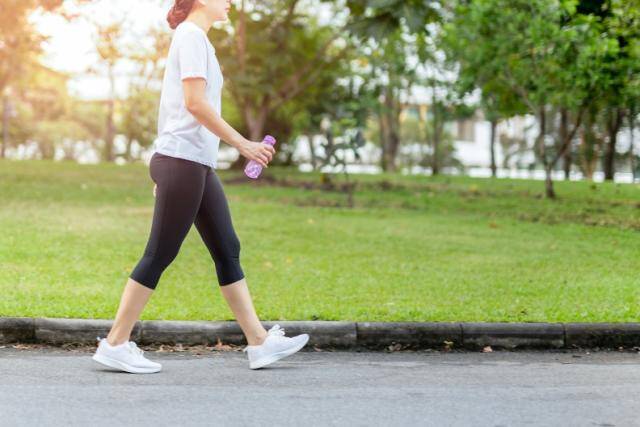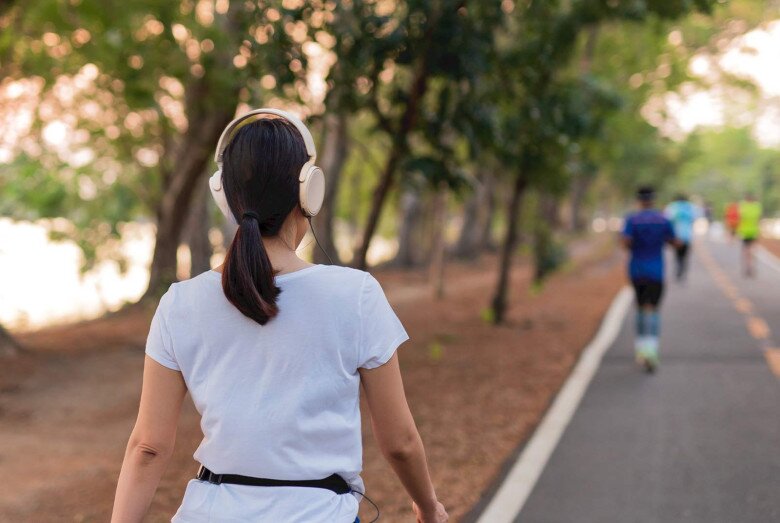Morning or Evening: Which Is the Better Time for a Walk?
Advantages and Disadvantages of Morning Walks
Walking in the morning does more than just energize your day; it offers significant health benefits. Early morning exercise boosts your metabolism, helping your body burn calories more efficiently throughout the day. It is especially beneficial to walk before breakfast as it accelerates fat-burning. This habit also aids in controlling appetite and curbs the intake of unnecessary calories, a big plus for those aiming to maintain their figure.
A study published in the prestigious medical journal Frontiers in Physiology found that morning exercise helps women reduce body fat and weight.
The researchers conducted a 12-week study on 56 participants aged 25 to 55 (30 women and 26 men). All participants had a daily exercise habit, were non-smokers, and had a body mass index (BMI) below 25. They were randomly divided into two groups: one exercised in the morning from 6 am to 8 am, and the other in the evening from 6:30 pm to 8:30 pm. Results showed that compared to evening exercise, morning workouts helped women reduce total body fat and abdominal fat by 3% and 7%, respectively.

While morning walks aid in fat burning, they may lead to respiratory issues due to poor air quality.
However, the air quality in the early morning is often poor, and exercising at this time can cause respiratory problems. Additionally, as the parasympathetic nervous system dominates during sleep, walking immediately after waking up can lead to a sudden increase in sympathetic nervous system activity, resulting in elevated blood pressure and heart rate. This may, in turn, increase the risk of stroke or heart attack. Moreover, during winter, this risk is higher, so it is advisable not to force yourself to exercise in the morning.
Advantages and Disadvantages of Evening Walks
An evening walk is not just a gentle way to end a busy day; it also offers benefits for both physical and mental health. After a long day, light exercise relaxes the body, relieves stress, and brings a sense of peace to the mind. Additionally, walking after dinner aids digestion, helps burn freshly consumed calories, and prevents fat accumulation. Moreover, exercising at this time allows you to avoid the harsh daytime sun, making it more comfortable and pleasant.

Evening walks aid in calorie burning and digestion but come with an increased risk of injuries due to reduced visibility.
However, by evening, most people are physically and mentally exhausted, and their ability to react and move decreases. Visibility is also limited at this time. Exercising in the evening does not aid physical recovery and may increase the risk of injuries.
Lunchtime and Afternoon Exercise Reduce Risk of Death
A recent study published in Nature Communications analyzed data from over 90,000 individuals in the UK Biobank and found that physical activity at any time of day, including walking, can indeed reduce the mortality rate. However, the study also indicated that those who engaged in more activity between 11 am and 5 pm had a lower risk of early death compared to those who exercised in the morning or evening.
The researchers speculated that this could be related to the circadian rhythm of heart activity, as noon is also when the incidence of cardiovascular disease is lower. Therefore, if you have cardiovascular disease, you may want to consider walking between 11 am and 5 pm.
Additionally, the study suggested that if your goal is to burn more fat, you might opt to exercise before noon.

Exercising around lunchtime and in the afternoon avoids health risks. If fat-burning is your goal, walk before lunch.
How to Make the Most of Morning Walks
If you prefer walking in the morning, avoid doing so too early, especially in winter. The ideal time is around sunrise. Note that sunrise times vary with the seasons: in summer, walk around 5:30–6 am, and in winter, when it’s colder, aim for 6–6:30 am.
Before morning walks, runs, or bike rides, consider fasting for 10–12 hours, including your sleeping time. During this period, your body may start consuming stored fat for energy, maximizing fat-burning efficiency.
The stress hormone cortisol is released in higher amounts in the morning. This hormone can energize the body and promote fat breakdown. Thus, morning rhythmic exercises positively impact your mental state and enhance fat-burning.

Morning walks are best done at sunrise.
Maximizing the Benefits of Evening Walks
The ideal time for evening exercise is between 2 and 4 pm, before sunset. Working out at this time can boost your afternoon energy levels, counter afternoon sluggishness, and ease your body’s transition to a relaxed state in the evening.
Exercising before dinner may reduce your appetite and lead to eating less. A Dutch study found that afternoon and evening workouts increased insulin sensitivity, suggesting that exercising at these times may lower the risk of type 2 diabetes.
































